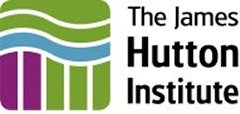 The James Hutton Institute
The James Hutton Institute
This page is no longer updated. The Macaulay Land Use Research Institute joined forces with SCRI on 1 April 2011 to create The James Hutton Institute.
Improving market integration and value-adding in domestic livestock enterprises in disadvantaged regions - implications for future research.
Second European Workshop of the LSIRD network
Dept. of International Animal Husbandry, University of Kassel, Witzenhausen, 27th - 29th September 1997
| Objectives | |
| Programme | |
| Field trip | |
| Venue and accommodation | |
| Travel arrangements |
INTRODUCTION
Established in 1996 to explore the future role that livestock farming will play in the development of the European less-favoured areas, and the implications of this for research, the LSIRD network is organising a series of conferences and workshops that will draw together the experience of a diverse group of experts in this field.
The LSIRD network held its first interdisciplinary conference in Greece (Nafplio) in January 1997. The programme explored the areas in which different research disciplines could be applied to address the specific problems encountered in LFA livestock production, and possible approaches to enhance the role of livestock in European rural development.
Moving on from Nafplio, a series of four workshops will examine in detail four main factors likely to have a significant influence on future LFA livestock farming, and to identify specific areas in which future research will be needed. These factors are:
The first of these was held in Granada, Spain in May 1997.
The purpose of this second workshop is to identify some of the opportunities for and constraints on adding value to production from domestic livestock systems in disadvantaged areas. This would include on-farm production of traditional products (e.g. cheese/yoghurt, wool and speciality fibres, processed meats, skins etc.) and products from specialised production systems (e.g. organic); innovation in marketing channels (e.g. farm shops, co-operatives, fairs, supermarkets etc.); and the opportunities for synergy between the marketing of livestock products and other rural economic activities, especially tourism (agri-tourism and regional promotion). The workshop will examine the different ways in which farmers may improve the value of their products, and identify areas of future research on how improved production chain integration can be achieved.
DAY 1
The programme comprises an introductory paper by Brian Revell, and 3 "conceptual" papers exploring different aspects of value-adding in a research context. The remaining 6 papers are each "case studies" of specific areas and applications of value-adding to livestock products (direct marketing, organic produce, Mediterranean products, fine wool, the Shetland Islands and the Rhön Biosphere Reserve).
It is intended that the time taken in presenting these reports at the workshop should be kept to a minimum (5 minutes), leaving time for full participatory discussion. On the strength of these discussions, further points may be added to each report reflecting the range of experience present. Total time for consideration of each report is about 25 minutes.
There will be a concluding session for general discussion, which will consider amongst other points raised during the day:
1. What are the options available to producers to increase the value of their products in LFAs ?
2. How should value-adding activities be encouraged within the LFA ?
3. What types of livestock system are best-suited to value-adding ? What research is required better to integrate production with value-adding activities?
4. What policies and/or structures (if any) are required to optimise the integration of production chains for livestock products (e.g. for organic produce)?
Subsequent to the meeting, a draft of the full workshop report, as amended will be circulated to all the participants for approval before publication.
A field trip has been arranged to visit the Rhoen Biospere Reserve (about 150km south of Witzenhausen). The first visit will be in the Thuringen section of the reserve to see a former GDR-farm in transition to suckler cow keeping in the EU context. Second stop will be in Bavaria to see sheep keeping as a new enterprise with added value from nature conservation, use of rare breeds and tourism. Lunch will include many specialities of the region. The third stop will be in Hessen to see the Weideochsen LEADER-project: Oxen fattening with local distinctiveness. Lastly we will talk to representatives of the local authorities in the Hessen part of the Rhoen Biosphere Reserve - Future goals and problems in animal husbandry in LFAs.
WORKSHOP VENUE & ACCOMMODATION
The workshop meeting is being hosted by Gerold Rahmann of the Dept. International Animal Husbandry, Faculty of Agriculture, Steinstrasse 19 D-37213 Witzenhausen Tel: +49 (0) 5542 98 1207 FAX: +49 (0) 5542 98 1250 E-mail: rahmann@wiz.uni-kassel.de.
The meeting will take place at:
Waldhotel Soodener Hof
Hardtstrasse 7 37242 Bad Sooden Tel. +49 (0)5652 9560 FAX +49 (0)5652 956222
Email: akzent-waldhotel@t-online.de http://www.akzent.de/hotels/ak129.htm

Delegates should make their own way to Göttingen Railway station on Friday 26th September, from where transport will be arranged to the Institute. This can be easily reached from Frankfurt, Hannover, or Kassel airports.
Directions from Frankfurt
From the airport train station, take the train at Platform 1 to Frankfurt main station (arriving at main station 12 minutes later). There you get an ICE train to Goettingen. The transfer to Göttingen takes about 1 1/2 hours. There we will pick you up and bring you to the hotel.
It is important that LSIRD is informed as soon as possible of your :
arrival time, place and airline
Travel expenses may be claimed back in full from LSIRD network for which we will need the ticket invoice and an appropriate claims form.
If you have any queries at all about this, please contact Jerry Laker